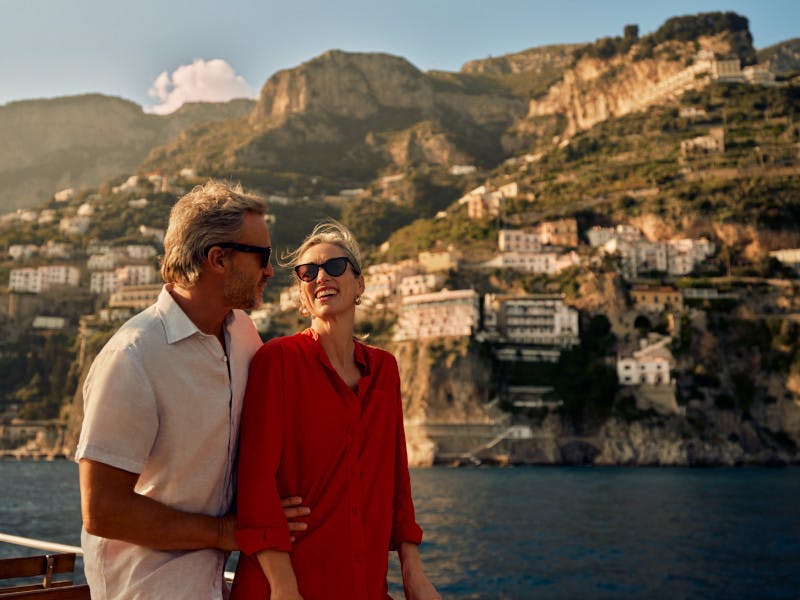How to Choose Your Cruise: Europe’s Mediterranean Sea
Whether you’re basking like Bardot on the glamorous beaches of St-Tropez, gliding along the coast of Croatia in a color palette of terracotta, bottle green and indigo, or gasping at the intricate stone carving of the Alhambra in Granada, Spain, the Mediterranean will seduce you. Every time.
My love affair with the Mediterranean began decades ago, when I was backpacking around Greece, living on Greek salad and pine-fragranced retsina wine and swimming in the sea at midnight under a full moon, watching my shadow on the seabed. Although I enjoy traveling in more style nowadays, those “wow” moments never fail to dazzle me every time I visit France, Spain, Italy, Croatia or Greece.
You may be embarking on a time-efficient sojourn or treating yourself to a longer voyage, thanks to back-to-back itineraries. Either will leave you awestruck and enriched. It would take a lifetime of exploration to know this region fully.
Why? Because in the Mediterranean, you don’t just look at art. You live it, walking in the footsteps of Renoir, Picasso and Van Gogh, understanding exactly how they were drawn to Provence by the shimmering quality of the light.
History is living and evolving. The excavations at Pompeii and Herculaneum are constantly revealing more secrets of what life was like in 79 A.D. (aka CE). Only a fraction of Ephesus has been exposed so far. Gaudí’s crazy, wavy, technicolor Sagrada Familia cathedral in Barcelona still isn’t finished, although CNN has recently reported that it may be done in 2026, more than 140 years since it began. The people who live here are proof of the diversity of cultures and influences that have shaped this crossroads of civilization. The welcome that just gets warmer as you head farther south.
Phrases such as la dolce vita and la joie de vivre have meaning here, where life is about beauty, art, culture, family, food and friendship.
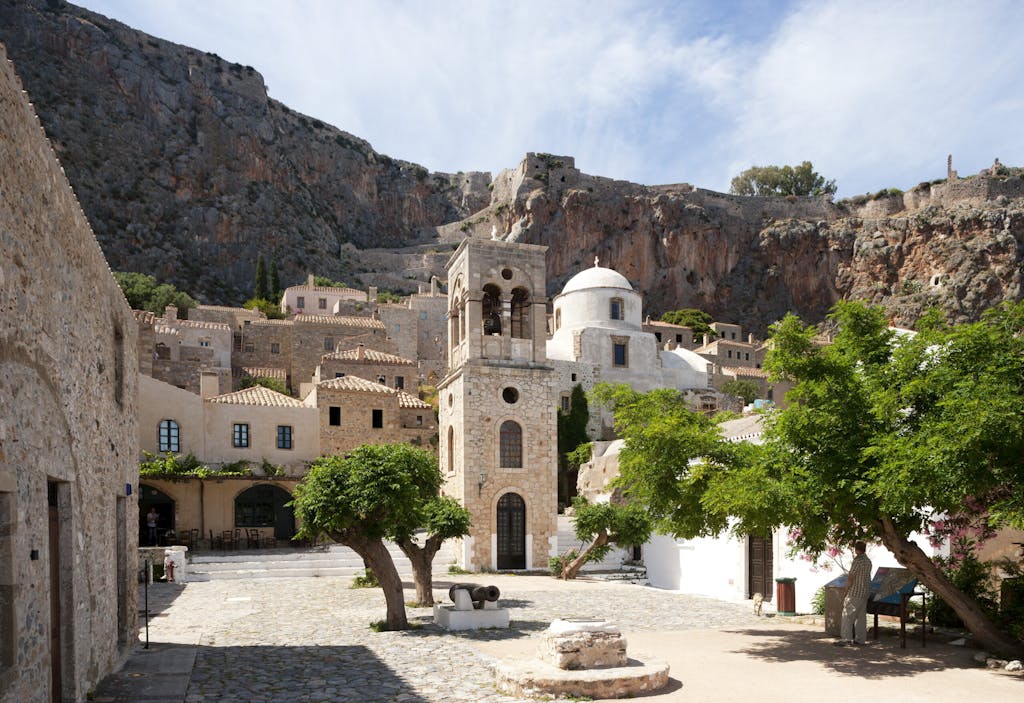
For visitors, a voyage around the Mediterranean and beyond, is a feast for every sense. Stepping into St. Peter’s Basilica in Rome and feeling a rush of emotion at its sheer enormity. Clambering up to the ruined ramparts of tiny Monemvasia in Greece’s Peloponnese, insects humming and the scent of wild herbs in the air. Gliding along the canals of Venice in a gondola, gazing up at the crumbling ochre of a palazzo, the aroma of sizzling garlic wafting out of a restaurant window. Seeing the Alhambra’s Palace in Granada, Spain, for the first time, with the snowy ridge of the Sierra as a backdrop.
For me, there’s the satisfaction of smaller yet no less wonderful discoveries such as finding the perfect homemade pistachio gelato (Calata 32 in Portofino, Italy, is one of my favorites), or the slight decadence of a limoncello granita with your morning coffee in a sunlit square on Capri in the Campagna region of Italy.
And new in the Mediterranean in 2025/2026 is Silversea’s “off season” series of itineraries. The region’s temperate climate, along with the immersion that comes with blending in with locals’ during a time when few tourists are there, offers a fresh new experience. It’s a season when, between October and March, the Mediterranean lifestyle is at its most authentic.
How can you make the most of your time in the Mediterranean? Take inspiration from the local way of life. Slow down. There’s a temptation to race, trying to pack everything in. And, understandably, taking in the sights is important. But you shouldn’t end your voyage exhausted. Croatians have a word for the ideal way of life: fjaka – a pleasant state of mind achieved from doing absolutely nothing. This translates across all the cultures of the region.
A Croatian friend looked at me in astonishment as I downed my coffee in my normal quick fashion. “What are you doing?” he asked. “I don’t want it to get cold,” I replied. “That’s not the point,” he said. I was offending his sense of fjaka.

Mornings, then, are for a long, extended coffee and shooting the breeze with friends. Lunch is late – and it’s perfectly acceptable to enjoy a siesta after fresh seafood on some gorgeous harborfront, washed down by a crisp local white. As the heat fades, the locals emerge for their passeggiata, as Italians call the evening stroll. This is a time for greeting friends, enjoying the warmth of the evening, watching the light shimmer gold on the rippling water and sitting in a café for aperitivos, to whet the appetite.
And new in the Mediterranean in 2025/2026 is Silversea’s “off season” series of itineraries. The region’s temperate climate, along with the immersion that comes with blending in with locals’ during a time when few tourists are there, offers a fresh new experience, a time when, between October and March, the Mediterranean lifestyle is at its most authentic.
Choosing the Mediterranean cruise that best fits your travel style can be a fun challenge. Here we tackle the Mediterranean’s best-known regions. In some cases cruises focus specifically on one region. In others, itineraries may combine distinctly different areas of the Mediterranean. Here are your choices.
The Adriatic
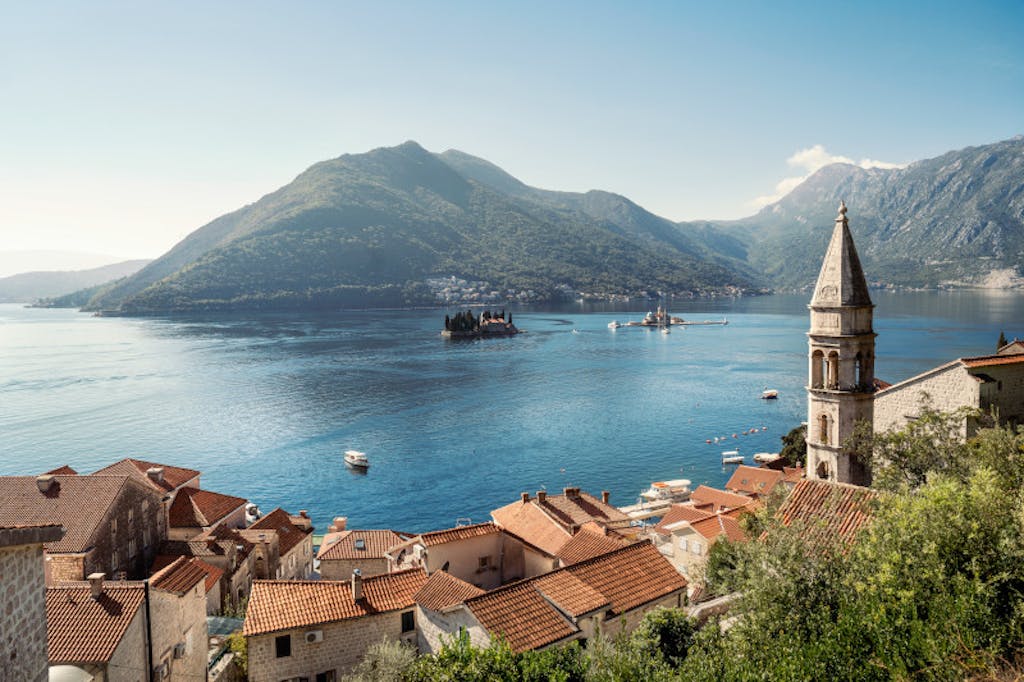
In a nutshell:
This is a region that awakens the senses, from the serene elegance of Venice and the rugged beauty of Dubrovnik to simpler pleasures. Jumping off sun-warmed rocks into Croatia’s crystal clear water, for example, or in Sicily, the indulgence of crunchy cannoli, oozing sweetened ricotta, with your morning cappuccino.
What you’ll see:
The delights of Venice include the stately Rialto Bridge, Piazza San Marco and the Doge’s Palace, not to mention world class art collections such as the Peggy Guggenheim Collection and the Fondazione Querini Stampalia.

But really, on my favorite visits to La Serenissima, I love to simply wander, losing myself in the narrow alleys and waterways, where cats doze on flower-filled windowsills and the dark, garlic-scented interiors of tiny trattorias beckon at lunchtime.
Beyond Venice, the most popular port of all in the Adriatic is Croatia’s Dubrovnik, swaggeringly beautiful, its terracotta-roofed building encircled by massive ramparts, the sparking Adriatic beyond. Split, too, is fascinating, not least as its principal attraction, Diocletian’s Palace is a piece of living history, with shops, cafes and private homes inside the former Roman emperor’s home.
Zadar is buzzing with street life and a short distance to the tumbling waterfalls and dramatic limestone features of Paklenica National Park and Krka National Park. Kotor, in Montenegro, lies at the end of a vast fjord, surrounded by mountains and hemmed into its protected position by magnificent ramparts, snaking up the hillside behind the old city. Don’t miss the sail-in, even if you have to set your alarm a little earlier than normal.
Voyages that sail between Venice and Rome head farther south into the Ionian Sea, to visit Corfu, with its graceful Venetian architecture, Corfu’s elegant, arcaded Liston promenade and the opulent, 19th-century Achilleion Palace close to Corfu and built for Elisabeth, Empress of Austria. If your ship calls at Siracusa on Sicily, simply stroll and enjoy the city’s beauty, all Baroque piazzas and Greek antiquities. The Parco Archeologico della Neapolis is one of the most important sites on Sicily, its dazzlingly beautiful Greek theater dating to the 5th century B.C.
Culinary discovery: Through S.A.L.T. Experiences, its adventures ashore program that is offered on all of Silversea’s classic itineraries, you can learn about the wine of Dalmatia, in Split; explore The Wild Side of Puglia with Foragers; and enjoy a Wine and Dine at Split’s Bibich Winery.
Choose your cruise: Interested in exploring the Adriatic coast? Silversea offers several possibilities. One itinerary includes a Venice roundtrip that focuses on Adriatic ports of call. On the other hand, a Rome-to- Venice cruise incorporates more of Italy, with calls at Naples, Sicily, and Bari, besides stops along the Adriatic coast.
The Western Mediterranean
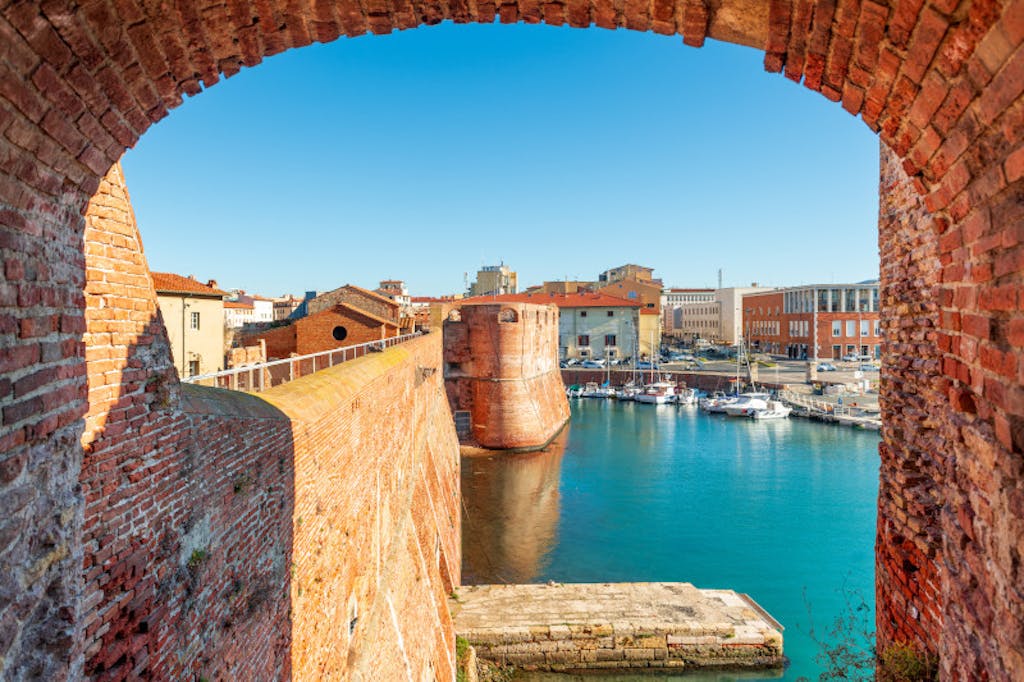
In a nutshell:
If you’re looking for the nostalgic glamour of the Mediterranean, you’ll find it here, in the jewel-like villages studding the Italian Riviera and along France’s shimmering Côte d’Azur in France. This itinerary also shows off the treasures of Tuscany, from the Uffizi in Florence to Pisa’s Leaning Tower. You’ll discover a quieter face of France, too, toward the Spanish border, where the coastline is characterized by pine forests and fishing villages.

What you’ll see:
Art and architecture vie for your attention with the temptations of golden beaches and waterfront seafood restaurants on a cruise between Civitavecchia, the port for Rome, and Barcelona, Spain.
Livorno is the gateway to the rolling hills of Tuscany, and while the art treasures of Florence and the Leaning Tower of Pisa are the headline attractions, there’s much more. Taste wines on the Bocelli family estate, or cycle the medieval walls of Lucca. Join a Tuscan cookery class, or try your hand at truffle hunting. Explore medieval San Gimignano, its skyline punctuated by towers built by warring families in the Middle Ages.
Lovely old towns such as Portoferraio on the island of Elba and Calvi on Corsica, guarded by a medieval citadel, are best explored on foot, while the gelato-colored waterfront of wealthy Portofino is the ideal place for window shopping and people-watching. Around the island of Sardinia, the water is an astonishing shade of turquoise against the white limestone cliffs, with kayaking, hiking and sailing on offer from the fortified old town of Alghero.
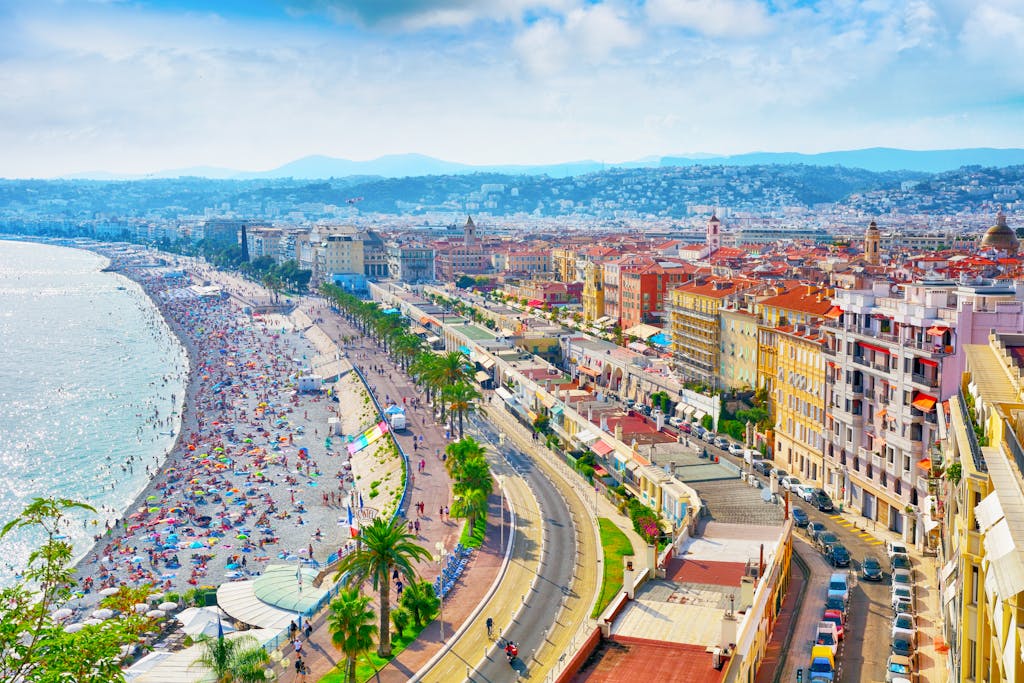
On the Côte d’Azur, Nice is all Belle Époque opulence along the elegant sweep of the Promenade des Anglais. While trips into the mountains to the pretty towns of Eze and St. Paul de Vence are tempting, you could do as the locals do: Spend a long afternoon in one of the restaurants lining the Cours Saleya, Nice’s famous market street, sampling socca, the local speciality of chickpea flour pancakes, a salad Niçoise and a fine, dry rosé from Provence.
As you head west, the golden beaches give way to craggy coves and pine-forested cliffs, and wealthy resorts are replaced by working fishing villages. Coullioure, one such village, is as pretty as a picture, boats bobbing against a backdrop of pastel-colored houses. This is the setting that inspired Henri Matisse and later, Pablo Picasso and today, the small town is packed with galleries and ateliers.
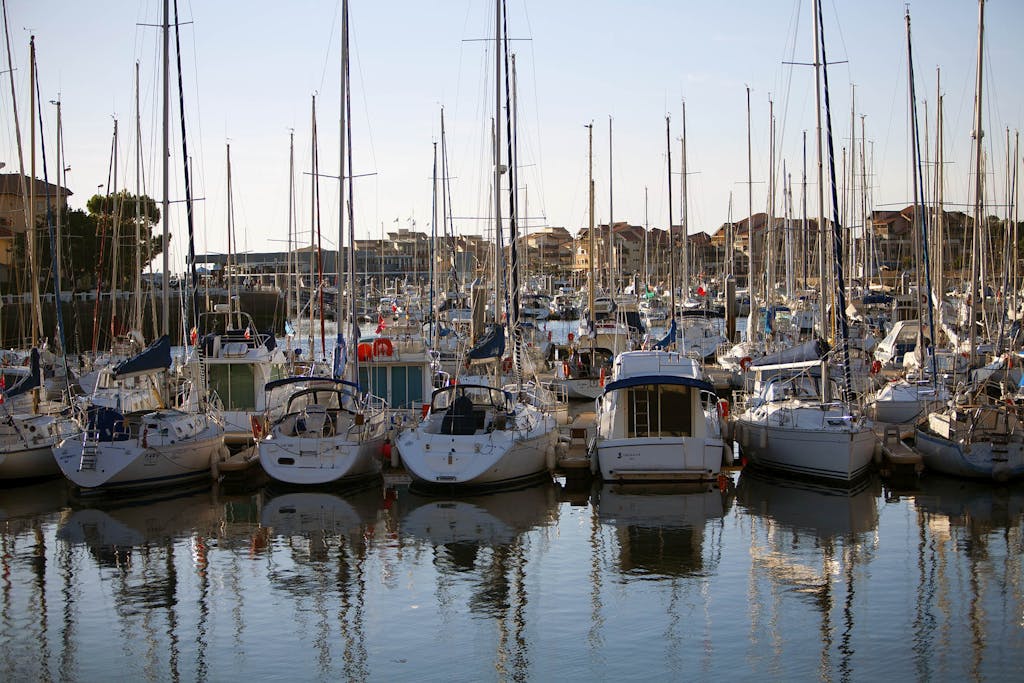
Culinary Discovery: Here in the Western Mediterranean, S.A.L.T. Experiences transport you throughout Italy and France. Taste the distinctive wines of Mt. Etna, near Naples; make pizza in Sorrento; and indulge in Fire and Grapes, a barbecue in the Tuscan Hills. In Sicily, learn the secret behind centuries’ old preparation of cannoli.
Choose your cruise:
The Western Mediterranean lies in Silversea’s backyard, and Silver Shadow will carry many of those passengers and also will embark on the World Cruise 2028, a 132-day voyage from Miami to Nice.
The Eastern Mediterranean: The Greek Islands and Turkey

In a nutshell:
A voyage that calls at the Greek Islands is a happy exercise in putting ancient history and mythology into context as you explore rocky islands, sapphire-blue seas and harbors so quaint they belong in a movie set. Don’t just picture the white cubes and blue-domed churches of the Cyclades; visit them. You’ll see graceful Venetian mansions, medieval palaces and 2,000-year-old temples. And you’ll encounter that famous Greek hospitality everywhere you dock.
What you’ll see:
Greek island voyages sail round trip from Athens, Fusina (Venice) and Split, Croatia. First-timers will no doubt want to see chic Mykonos, classic Cycladean architecture of dazzling, sugar-cube white houses, festooned with mauve bougainvillea, as well as the island’s iconic windmills. Little Venice, right on the water, is the place to sit for the best views and a double-take when the island’s resident pelicans waddle casually into a fish taverna in search of a snack.
Santorini, too, is magnificent, the towering cliffs of an ancient caldera forming an arc where the sea is a particular shade of indigo and white villages spill over the dark crater rim. Many of these more classic itineraries include a stop in Kusadasi, Turkey, for a visit to Ephesus, one of the world’s most dazzling Hellenistic and Roman archaeological sites.

Greece extends far beyond the Cyclades, of course. Repeat visitors might consider a voyage that visits Monemvasia, a perfectly preserved fortress town clinging to the side of a towering rocky peninsula. Also on the four-fingered peninsula of the Peloponnese is Nafplion, a delightfully elegant resort where shaded squares of smooth, polished stone are lined with buzzing cafes.
Rhodes is simply magnificent; stroll down the cobbled Street of the Knights into a medieval world of crusaders and exploration, immense wealth and fine stonework that has stood the test of time. Or further north, the Ionian islands of Kefalonia and Corfu, where the architecture bears the elegant influence of ancient Venice and the landscape is punctuated by regiments of slender, dark green cypress trees.
If your itinerary stretches north to Venice, you’ll also want to read more in our Italy and the Adriatic section.
Culinary Discovery:
For S.A.L.T.’s experiences program, Greece and coastal Turkey was its birthplace. Learn to make Myconian cheese in Mykonos or sample Turkey’s “liquid gold” (olive oil) in Kusadasi.
Choose your cruise:
The Eastern Mediterranean’s Greek Islands and Turkish Coast is in proximity with the Western Mediterranean. Another option: Some itineraries focus solely on the Turkish Coast and the Greek Isles and others mix and match between the too.
The Iberian Peninsula
In a nutshell:
Any voyage around the Iberian Peninsula is shaped by the dazzling legacy left by 800 years of Moorish rule, with Granada’s Alhambra and the Giralda Tower in Seville just two unforgettable highlights. In addition, you’ll come away with a strong sense of Spain’s diversity, from the sleepy pueblos blancos scattered across the mountaintops of Andalucia to the buzz of Barcelona, all attitude, designer tapas and avant garde architecture.
What you’ll see:
The Moors from North Africa were an influential presence on the Iberian Peninsula for some 800 years, finally departing in 1492. To this day, their influence is everywhere, from place names to food and architecture, and their legacy forms a backdrop to any itinerary here. You’ll see the mesmerising, dusky pink-hued Alhambra outside Granada; the intricate Alcázar Palace and Giralda Tower in Seville; and the elaborate Almudaina Royal Palace in Palma de Mallorca.

There’s Roman architecture, too; in Cartagena, the magnificent Roman amphitheatre has just been restored. The ancient tangle of streets of Cádiz, meanwhile, pre-dates all of these, to the times of the Phoenicians in 1100 B.C.
Barcelona, on the other hand, is famed for the eccentric and elaborate swirls and curves created by the modernista architects of the early 20th century, the most famous being Antoni Gaudi, whose Sagrada Familia cathedral is one of the most visited sites in Spain. Buy an extended ticket here, assuming you’ve got a head for heights, to ascend one of the skinny towers, for stupendous views across the city.
Food plays an important role in any voyage around Iberia, brought to life by Silversea’s immersive S.A.L.T. program of excursions and experiences. Valencia is the home of paella and if you enjoy what you’ve sampled, check out the Belle Époque Mercat Central in the city center for big bags of fragrant saffron. In Lisbon, it’s all about pastéis de nata, sweet, flaky pastry custard tarts, with bakeries competing to produce the best of these decadent delicacies. And don’t miss a chance to try one of Lisbon’s storied tascas, the Portuguese take on the French bistro or Italian osteria
Barcelona, on the other hand, is packed with tapas bars. Try El Quim de la Boquería, right in the middle of the famous indoor market, where all the dishes come from producers in the market itself.
Culinary discovery:
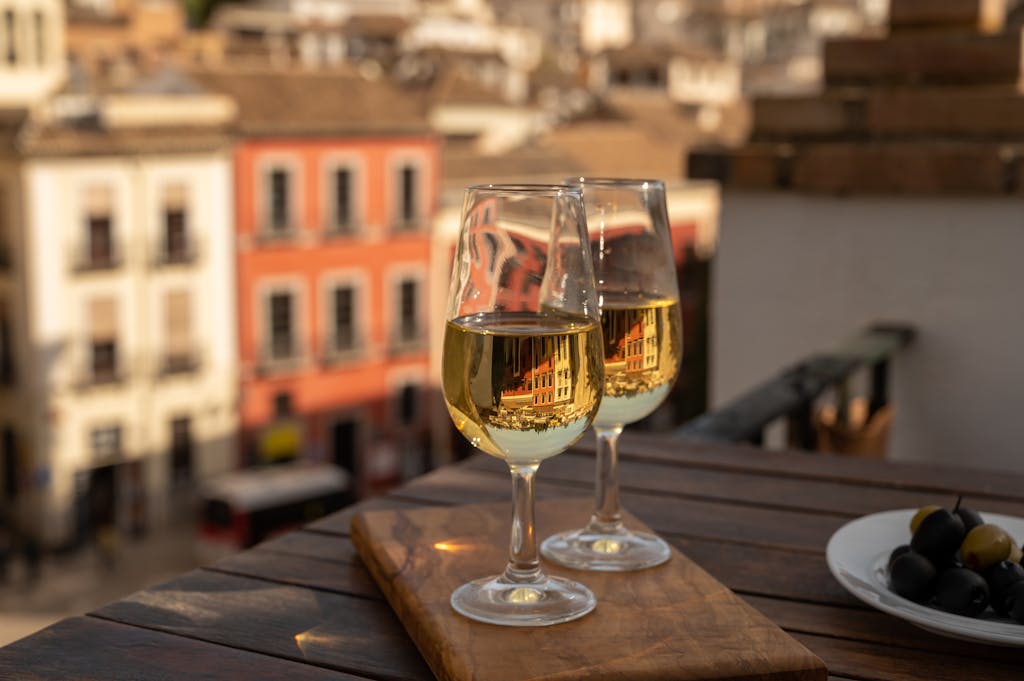
Learn the secret culinary traditions of Spain’s Andalucia and treat yourself to a rare, sherry barrel tasting at an eighth generation producer outside of Cadiz. In Spain’s Basque, visit the Michelin-starred Garena restaurant, and taste precious wines.
Choose your cruise:
Spain and Portugal are increasingly popular destinations for Silversea, and voyages are enhanced by a vibrant S.A.L.T. program.
